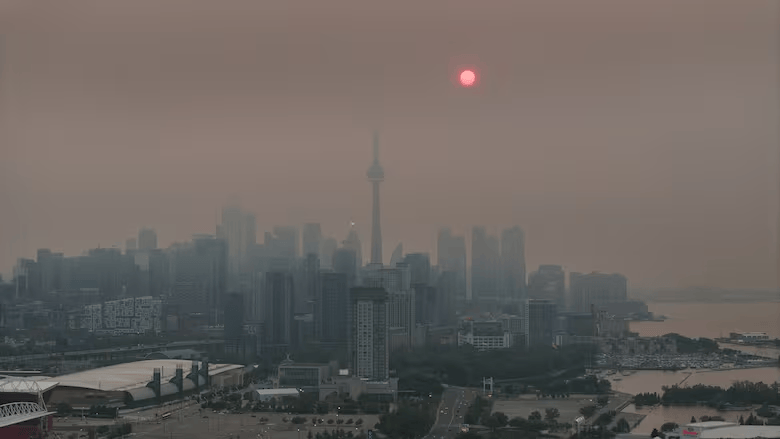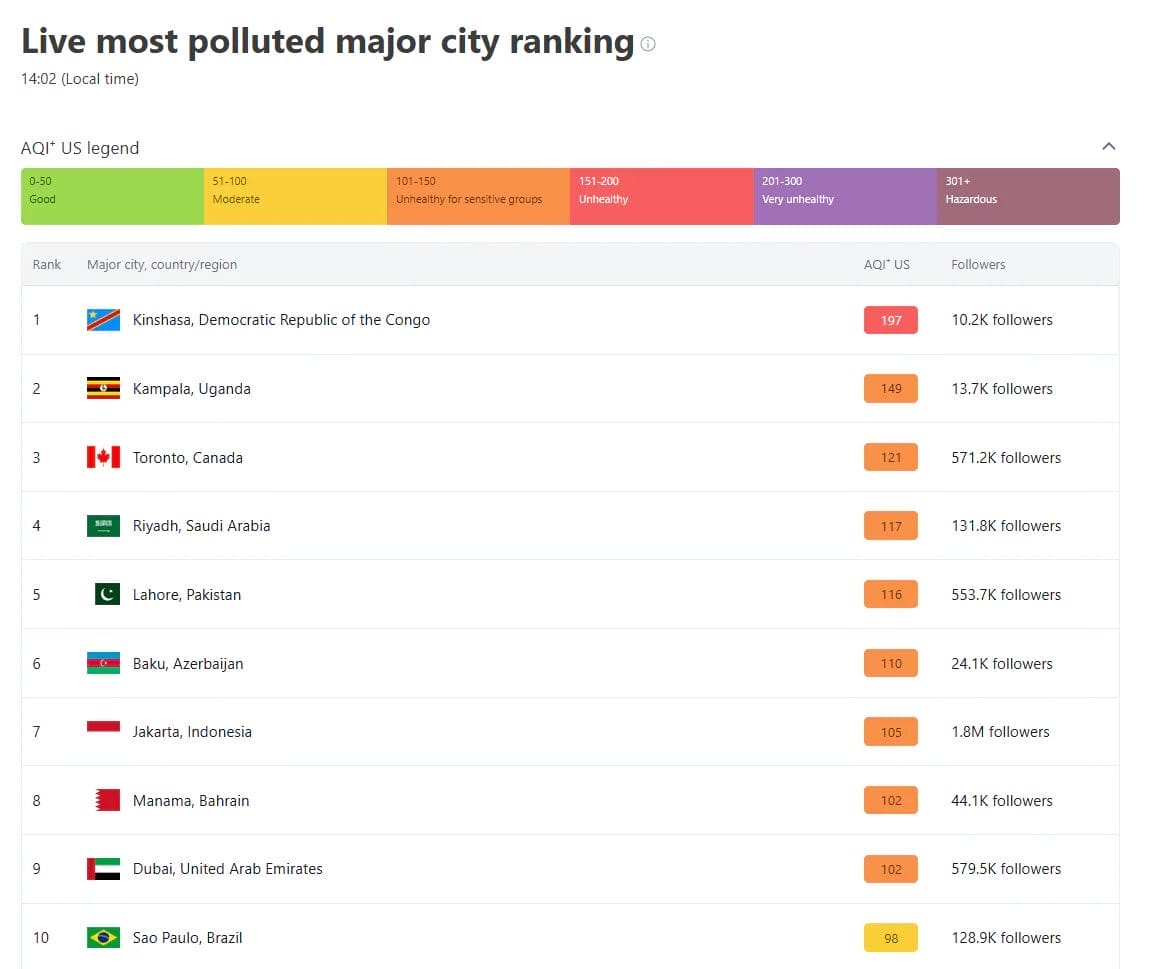Toronto Among the Most Polluted Cities as Wildfire Smoke Triggers Air Quality Alertfeat
Toronto woke up to concerning air quality levels on Sunday, placing third among the most polluted cities worldwide, according to IQAir. With a high-risk rating of 7 on the Air Quality Health Index, much of the Greater Toronto Area is under a special air quality statement as wildfire smoke continues to drift in from the Canadian Prairies.

What Is Causing the Smoke?
The haze blanketing the city is coming from intense wildfires burning in Saskatchewan and Manitoba. A high-pressure system is pushing smoke southeast toward Ontario and Quebec, dragging fine particulate matter into the lower atmosphere. These particles reduce visibility and make breathing difficult, especially for sensitive groups.
Environment Canada has issued alerts for several provinces, including:
- Ontario
- Quebec
- Alberta
- Saskatchewan
- Manitoba
- Northwest Territories
Affected cities include Toronto, Ottawa, North Bay, Sudbury, Montreal, and Winnipeg, with some regions experiencing fluctuating visibility throughout the day.
Toronto’s Current Risk Level

As of Sunday morning, Toronto’s air quality ranked as one of the worst globally, ahead of major urban centers often plagued by smog. The high level of PM2.5 in the air (fine particles under 2.5 microns in diameter) poses health risks even during brief outdoor exposure.
Advertisement
While forecasts suggest that the smoke may start to clear by evening, authorities warn that conditions could remain poor into Monday.
What You Should Do Right Now
Authorities urge residents to take immediate precautions:
- Stay indoors and reduce strenuous outdoor activities.
- Close windows and doors to keep indoor air clean.
- Use HVAC systems on recirculate mode if possible.
- Consider high-efficiency air purifiers for indoor air quality.
- If going outside, wear a KN95 or FFP2 mask for better protection.
- Check on vulnerable individuals like seniors, young children, and those with respiratory issues.
Signs to Watch Out For
Common symptoms from smoke exposure include:
- Eye, nose, or throat irritation
- Persistent coughing or wheezing
- Headaches or dizziness
- Chest tightness or difficulty breathing
If symptoms worsen or become unmanageable, consult a healthcare professional promptly.
Advertisement
A City on Alert, But Not Powerless
With extreme weather events becoming more frequent, public health experts stress the importance of early preparation and real-time monitoring. Free air quality apps, such as those from IQAir or local weather networks, can provide hourly updates and forecasts to help residents stay informed and safe.
Toronto’s ranking may improve as winds shift and conditions stabilize. But for now, the city remains in a cloud of uncertainty—literally and figuratively.
How are you staying safe during this air quality alert? Do you think cities should be doing more to prepare for wildfire smoke events?
More…
- https://www.iqair.com/newsroom/wildfire-smoke-air-quality-alert-toronto-among-top-10-most-polluted-cities-in-the-world
- https://www.cbc.ca/news/canada/toronto/air-quality-statement-in-effect-for-toronto-gta-1.7600597
- https://www.seekyoursounds.com/news/toronto/special-air-quality-statement-issued-for-toronto-due-to-wildfire-smoke
Advertisement






